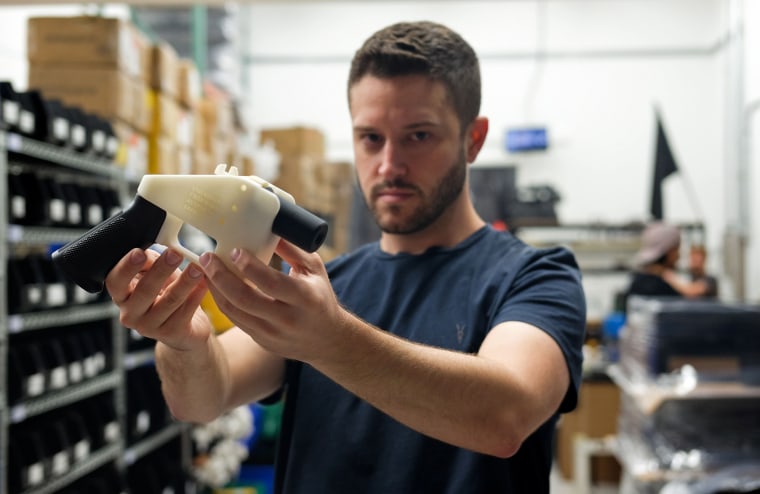The Texas man at the center of a national controversy after posting plans online for printing 3D guns has been arrested in Taiwan on a sexual assault charge filed in the U.S.
An arrest warrant had been issued Tuesday for Cody Wilson after a 16-year-old told investigators that a 30-year-old man had paid her $500 to have sex at an Austin hotel in August.
Police said that the victim told them that she had met the man online and exchanged texts, in which he identified himself as Wilson, and traded explicit photos. Surveillance video from the hotel shows Wilson entering with the minor and later walking towards a guest room, according to the police report.
"The U.S. Marshals Service is aware of Cody Wilson’s arrest. We are fully engaged with our international partners on this matter," the federal agency said in a statement. "This is the only information we will be providing at this time."
The Taiwanese state media Central News Agency reported that Wilson was arrested Thursday night at a restaurant in Taipei.
Wilson had left for the Taiwanese capital after being tipped off by a friend of the victim that she had gone to police, Commander Troy Officer of the Austin Police Department's organized crime unit told reporters at a Wednesday press conference. He subsequently missed a scheduled flight back to the United States.
Wilson has become a polarizing figure in the national debate over gun control as his company, Defense Distributed, continued to post blueprints for 3D-printed guns online despite a federal judge's injunction in August. The Texas-based company reached a settlement with the government in June allowing those plans to be downloaded — a marked departure from the Obama administration's efforts to keep the instructions off the internet.
Critics argue the plastic guns would be difficult to trace and can be passed through metal detectors without detection.
